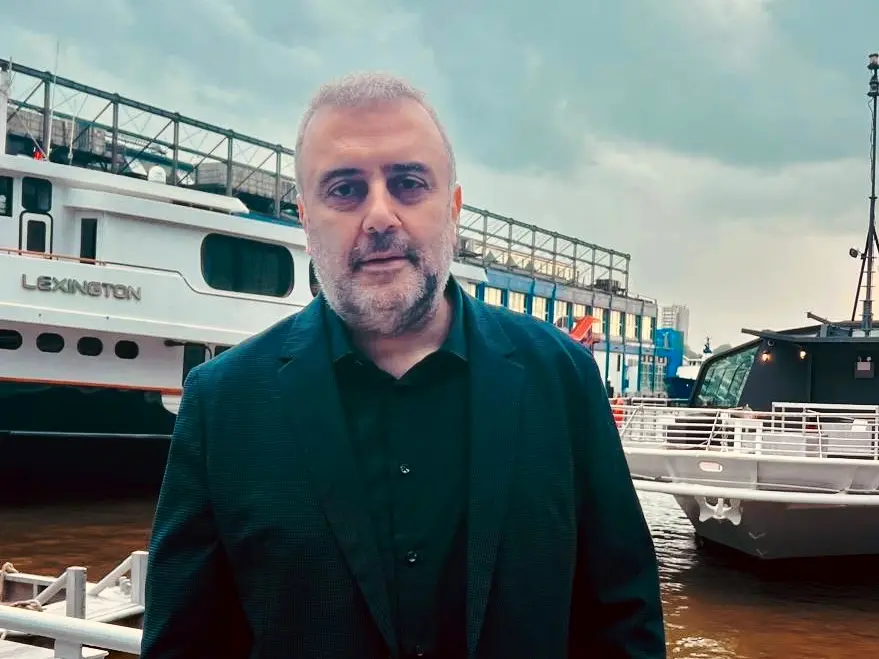 Image by courtesy
Image by courtesy
Now an attorney specializing in intellectual property, Charles Achkar ’86 is grateful to UML for the confidence he gained as an undergraduate biology major.
At the end of a long day at work, Charles C. Achkar ’86 likes to relax by reading science journal articles. During working hours, you might expect to find Achkar, who has an undergraduate degree in biology from UMass Lowell and a Ph.D. in molecular and cellular biochemistry from Loyola University Chicago, pursuing his passion for the latest scientific advances at a lab bench.
Achkar, however, has taken a different path to the forefront of science: He is a patent attorney specializing in biologics, small molecule drugs, gene therapy, diagnostics, vaccines, therapeutic methods, pharmaceutical compounds and formulations.
“One of the perks of being a patent attorney in the life sciences and biotechnology fields is that you get to learn new things before anyone else does – before the research is published,” Achkar says. “To me, that’s very exciting.”
Achkar was a postdoctoral fellow in the pharmacology department at Cornell University Medical College when a new future presented itself. He was an accomplished researcher, publishing several papers as lead author and seeing his work published in peer-reviewed journals in many fields, including molecular biology, biochemistry, pharmacology, enzymology, nuclear receptors and analytical biochemistry.
When one of Achkar’s discoveries was patented by the university, he was introduced to the process of securing intellectual property rights. It had immediate appeal for his wide-ranging intellect. Practicing patent law would free him from the grind of lab work and from inching innovation forward in one narrow field.
As a legal professional, he would work in boardrooms, in corporate offices, with scrappy startups and in academic settings as well as in the lab while he engaged with innovations across the life sciences. “I wanted to help medical research in a different way,” Achkar says.
After his fellowship ended, Achkar worked as a scientific advisor to a law firm specializing in intellectual property work while attending Fordham University School of Law at night. Since graduating from law school, he has worked as an attorney specializing in patents and intellectual property rights.
It’s not a future he foresaw when he arrived at UML in 1984 to study biology. On his own for the first time, he built a network of support on campus. “The university – the faculty and my friends – became my family,” he says. He remembers how the teaching skills of Prof. Robert Lynch kindled his love of biochemistry.
“He mentored me outside the classroom and also played some basketball with me,” Achkar recalls.
While focusing on academics was important when he was a student, Achkar acknowledges that the time he spent with his friends at UML was also a time of growth and learning.
“Life is funny,” he says. “It takes you in a different direction sometimes.” Thinking about his own path, he says, “Following your dreams may or may not be good advice. So, do what you are good at. If you do that, you will succeed.”
Among Achkar’s successes are a happy marriage and two flourishing young adult sons. In his free time, he enjoys the outdoors, travel and spending time with family and friends. Professionally, he’s honored to have secured patents for worthy inventions in the lifesaving fields of national biosecurity and cancer immunotherapy.
He recently joined the Kennedy College of Sciences advisory board. It’s been another change that he didn’t anticipate.
“After 40 years, I’ve come full circle, back to the university,” he says.
But some things have never changed. Achkar has never stopped being grateful to UML for the confidence it gave him. His passion for new discoveries has remained unchanged over decades, too. Plus, no matter how many decades he has used the law as his main tool for fostering innovation, he says, “Being a scientist never really left me.”
